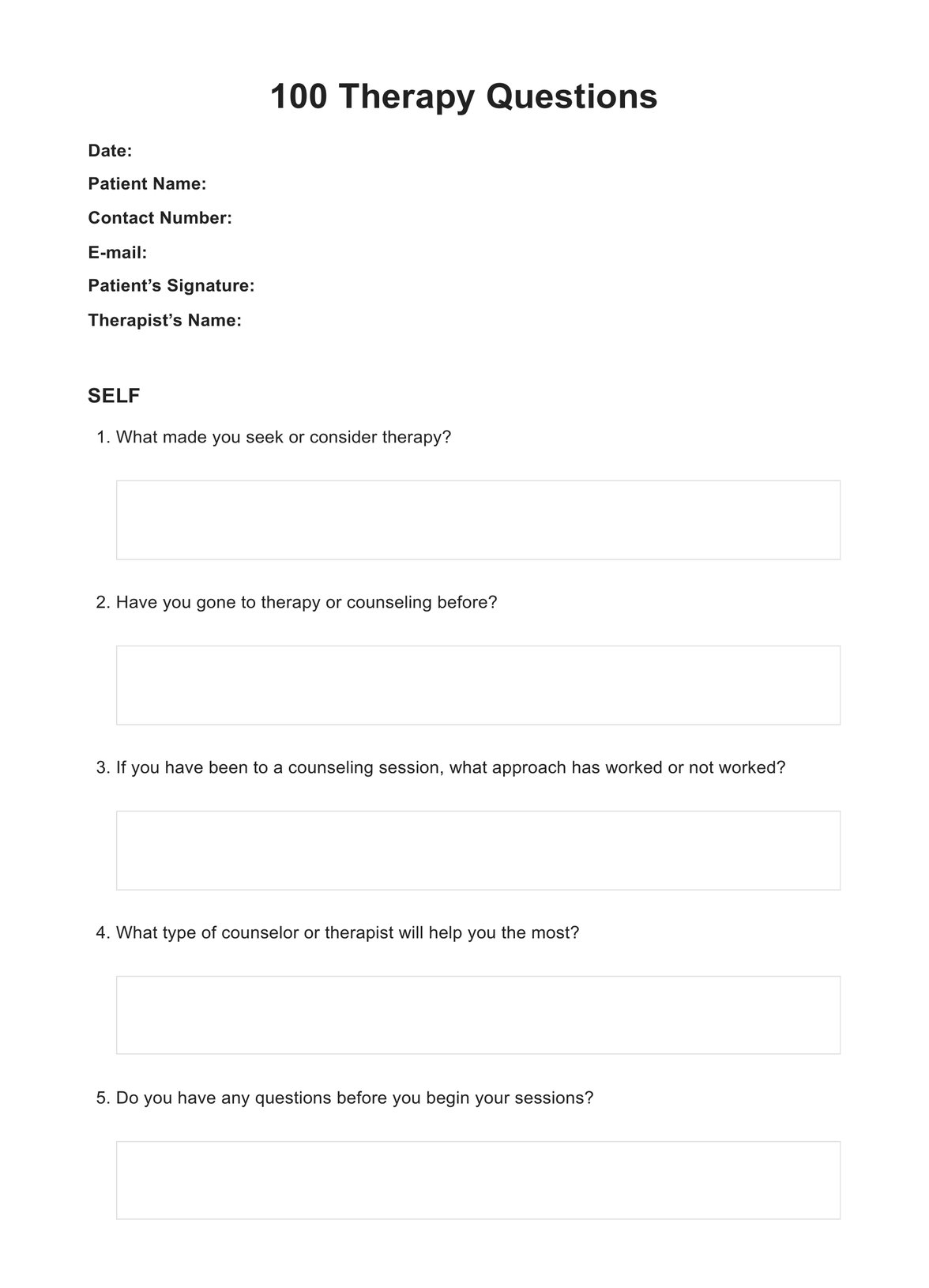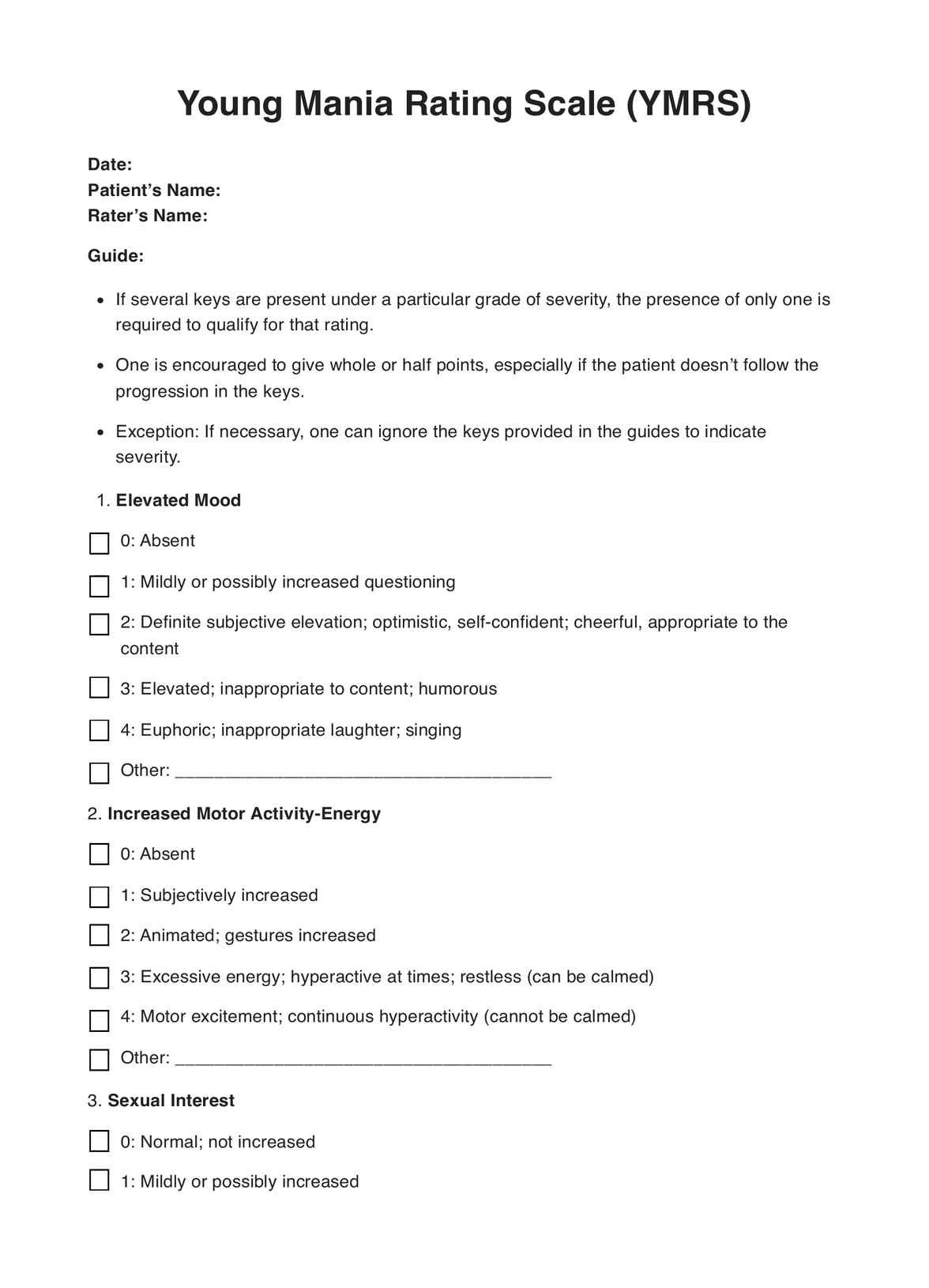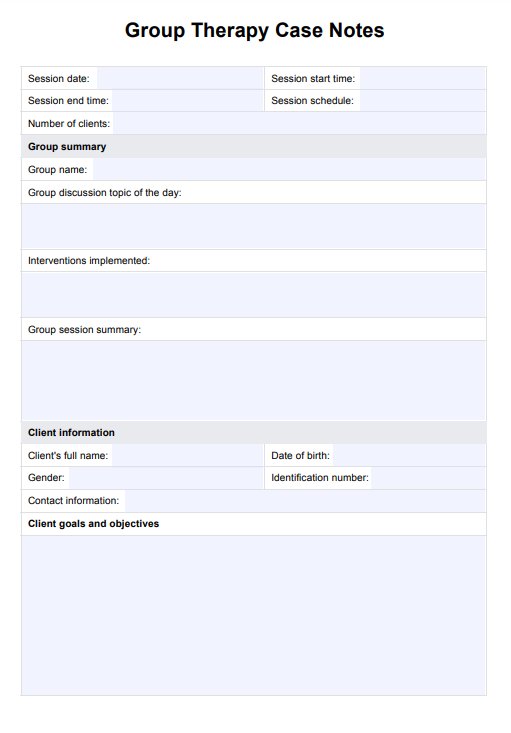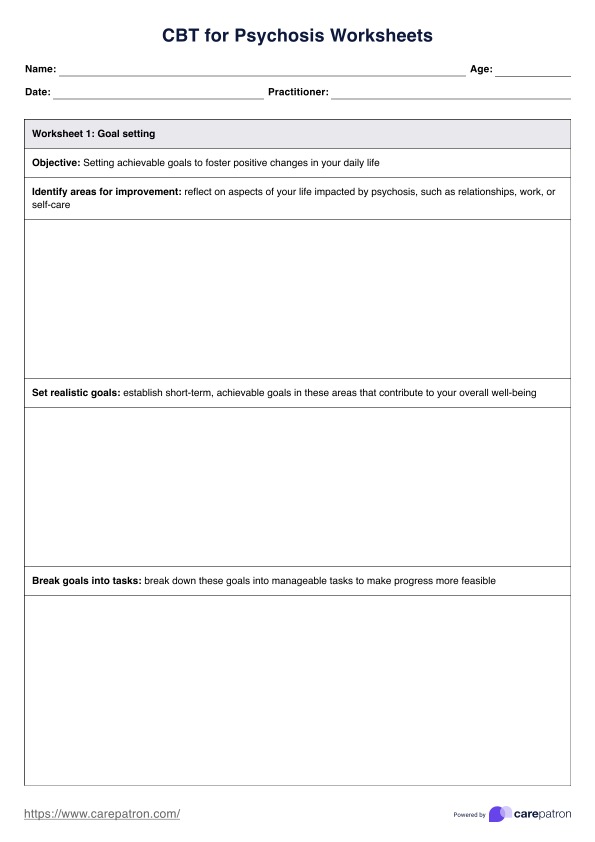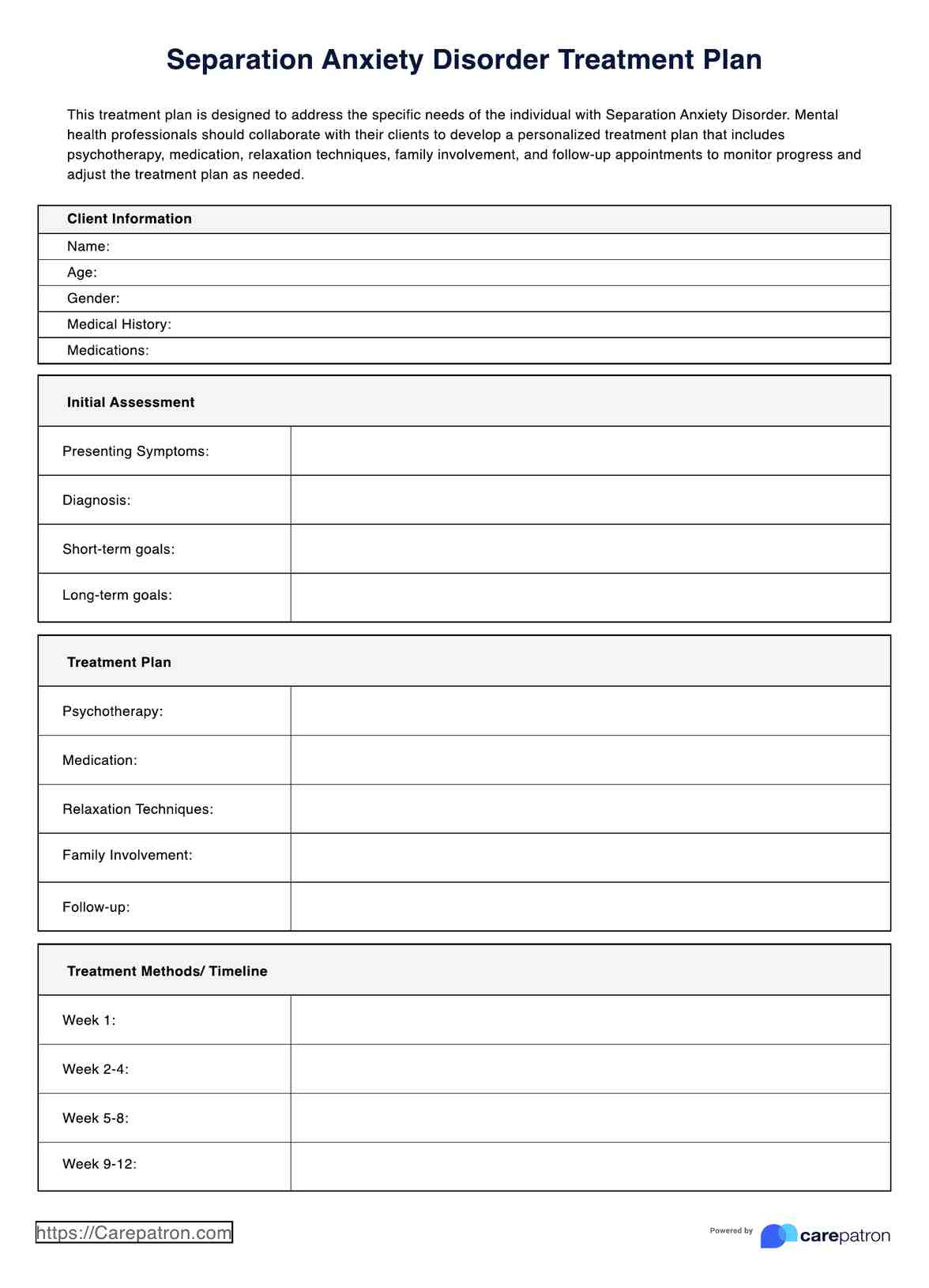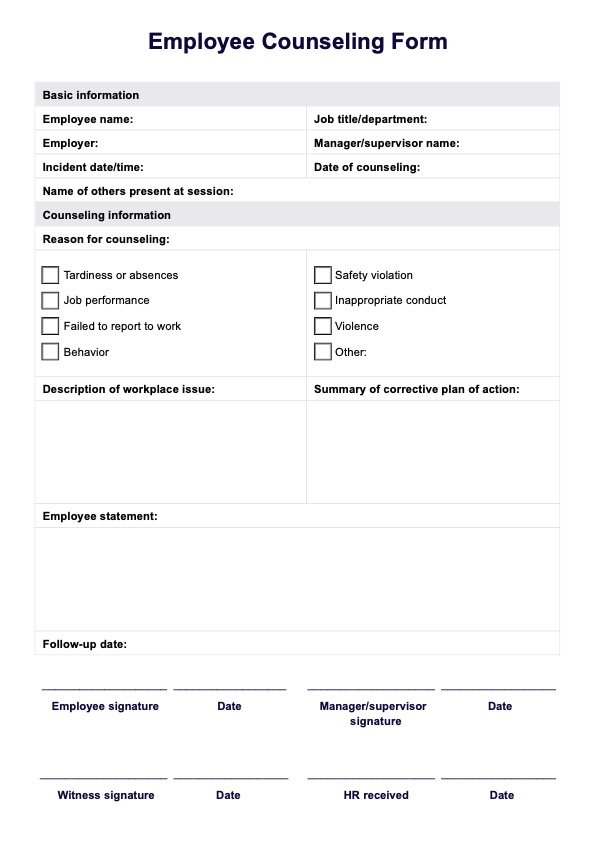Internal Family Systems Worksheets
An Internal Family Systems Worksheet that facilitates welcoming all parts of yourself.


What Is A Internal Family Systems Worksheet?
Internal Family Systems (IFS) is a form of psychotherapy that was developed by Richard C. Schwartz in the 1980s. It is based on the premise that each person's psyche contains many different sub-personalities, or parts, which have their own individual needs and motivations. These parts can work together harmoniously to produce mental health if they are allowed to do so without being suppressed or repressed by other parts within the system. This internal family systems worksheet allows for the exploration of these internal components and helps individuals understand how their thoughts, behaviors, and emotions are all connected. This process encourages self-awareness as well as insight into how one’s life has been impacted both positively and negatively by these various inner components of their personality structure over time. By providing an opportunity for reflection on how certain aspects may be causing distress or impeding progress in life goals, clients are encouraged to find ways to bring greater harmony among all elements within themselves in order to experience healing from within rather than relying solely upon external solutions such as medication or therapy techniques employed outside oneself.
Internal Family Systems Worksheets Template
Internal Family Systems Worksheets Example
How To Use This Worksheet For Internal Family Systems
The internal family systems worksheet is designed to be used straight away with no further hassle. An internal family systems worksheet example is also available on this page to offer you a better understanding of this template. Follow the steps below to get yourself started with this worksheet:
Step One: Download the PDF
Download the PDF onto your device or access this template from the Carepatron template library which offers you more flexibility over the content of the template. The PDF can be filled easily with the interactive text fields, or be printed out.
Step Two: Guide Your Client
Before your client writes anything down on the worksheet, use your expertise with the internal family systems to guide your client to build awareness and connection with the different parts within themselves. If you are going through this worksheet without a therapist, follow the instructions on the worksheet to get into the right mindset.
Step Three: Record the Process
Ask your client to reflect and record their feelings, emotions, experience, and thoughts during the process on to the worksheet which would help them develop insight about different parts of themselves, and how they interact with each other
Step Four: Documentation
Once the session is done, remember to document the file in an organized and secure manner. The content within this worksheet is considered for clients’ privacy and should be treated with care. It is also an invaluable resource for future reference.
Who Can Use this Printable Internal Family Systems Worksheet (PDF)?
The Internal Family Systems (IFS) worksheet is recommended to be used during sessions with qualified mental healthcare professionals, although it can be used by anyone who is interested in exploring their inner self and developing a better understanding of their mental health. This worksheet is particularly useful for people with anxiety, depression, trauma, or substance abuse issues as it provides an opportunity to explore the different parts of the self. Through completing this worksheet individuals can learn how to recognize and address patterns in their thoughts and behaviors that may be causing distress or difficulty functioning in everyday life. Furthermore, IFS has been found to reduce symptoms associated with many psychological disorders such as PTSD and depression while improving overall well-being when practiced regularly over time. Some examples of mental healthcare professionals are:
- Therapists and Psychotherapists
- Clinical Psychologists
- Mental Health Counselors
- Psychiatrists and Psychiatric nurses
Why Is This Form Useful For Therapists
The Internal Family Systems Worksheet is an invaluable tool for therapists. This worksheet allows the therapist to view the client's internal system as a whole and identify various parts of the self, their roles, and their relationships with each other in order to create an individualized treatment plan, that you can easily find a template in our library.
Further Understanding of Clients
This worksheet allows the therapist to better understand the client’s inner world and its dynamics. By using this worksheet, therapists are able to gain insight into how different parts of a person interact with one another, which can be useful in understanding how they respond to external stressors or triggers. Additionally, it helps them diagnose and treat disorders such as post-traumatic stress disorder (PTSD) or depression more effectively by targeting specific aspects of their personality that may be contributing to symptoms.
Encourage Self-Integration of Clients
This worksheet encourages clients to recognize all of their internal parts and accept them instead of rejecting them or trying to push them away. When clients are able to acknowledge all parts within themselves—even those they may not like—they can begin working on integrating these pieces into a cohesive whole rather than being divided from one another due to shame or fear. This integration process can provide clients with greater clarity on what motivates certain behaviors or thought patterns so that they are better equipped for therapeutic interventions in order for lasting change.
Improved Collaboration
This worksheet also provides therapists with an opportunity for collaboration between both parties during sessions since it encourages open dialogue between the therapist and client about any issues that may arise from exploring different aspects of themselves. Through active listening during these conversations and providing guidance when necessary, therapists are able to cultivate trust between themselves and their clients while simultaneously helping them move toward healing through increased self-awareness.

Benefits of Internal Family Systems Worksheet PDF
Encourages Self-Compassion
The Internal Family Systems Worksheet encourages self-compassion by allowing users to identify and accept their inner feelings, thoughts, and emotions without judgment. This helps to create a sense of understanding and acceptance within oneself, which can lead to greater emotional well-being.
Enhances Emotional Awareness
By using the worksheet, users are able to gain insight into their different ‘parts’ and learn how they interact with each other in order to better understand one's unique emotional landscape. This enhanced awareness can help individuals better regulate their emotions in order to cope more effectively with stressors.
Promotes Self-Healing
Through the use of this worksheet, individuals are able to gain an understanding of why certain behaviors or patterns arise in response to internal or external stressors as well as how these behaviors manifest themselves physically or emotionally over time. By recognizing underlying issues that may be at play, users can begin the process of self-healing through compassionate exploration and reflection on their own thoughts/feelings/behaviors.
Creates Space for Growth
The Internal Family Systems 'All Parts are Welcome' Worksheet provides a safe space for individuals to explore personal growth opportunities; by inviting all aspects of oneself, even those that may feel uncomfortable, into consciousness, people have access to previously hidden resources for learning and healing which further supports healthy development both internally and externally.
Reduces Shame & Stigma
This worksheet helps reduce the shame associated with complex emotions & experiences by creating a nonjudgmental environment where all aspects of oneself can be explored without fear or stigma attached; it allows individuals who may have been shamed for having “unacceptable” feelings in the past an opportunity for self-expression without fear of judgment from others or themselves.
Commonly asked questions
Yes, it is possible to do IFS therapy on oneself. Through self-reflection and exploration of the inner parts of one's psyche, a person can use IFS techniques to help resolve internal conflicts and gain insight into their own motivations. However, it is recommended that you seek the help of a qualified therapist to ensure you are using the therapy correctly and safely.
While certification is available to those who wish to become certified IFS practitioners, it is not mandatory to practice IFS. It’s possible for someone without formal training or certification to learn about and practice basic IFS concepts as a self-help tool. This could involve studying books, articles, podcasts, or videos about IFS; attending workshops or seminars led by experienced trainers; engaging in supervised individual sessions with an experienced practitioner; joining online discussion groups with other people interested in learning more about the model; and participating in experiential activities such as role-playing exercises or guided meditations. Those looking for a deeper dive into the theory and methodology behind Internal Family Systems can pursue professional training courses leading up to full certification from the Center for Self Leadership (CSL).
Internal Family Systems Worksheets are typically used by therapists and counselors to help their clients identify different parts of themselves. The client is responsible for filling out the worksheet, which involves writing down thoughts, feelings, and experiences related to the person's inner family dynamics. The therapist can then use this information to assess how well each part is functioning and provide guidance on how to better support them.


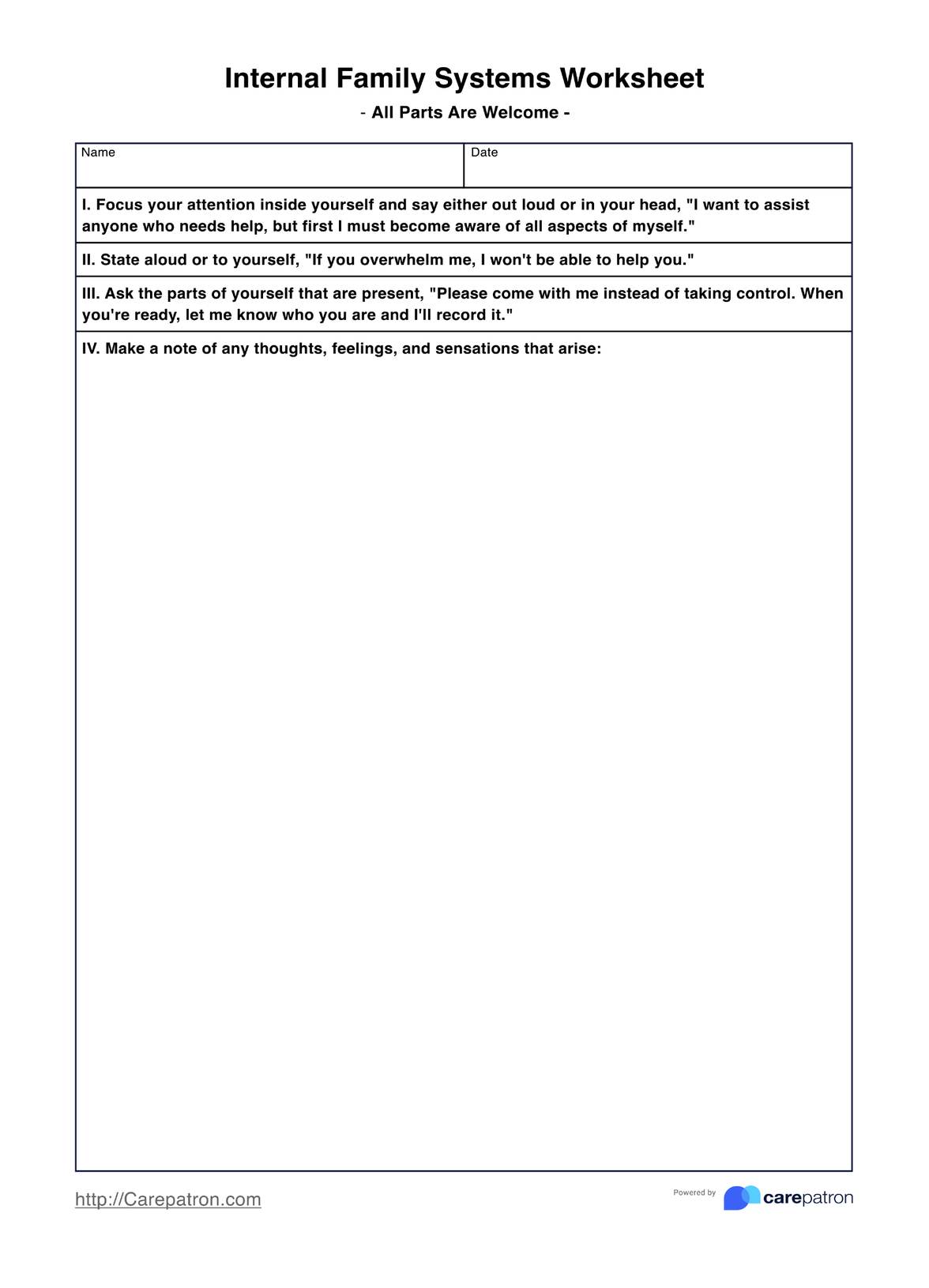
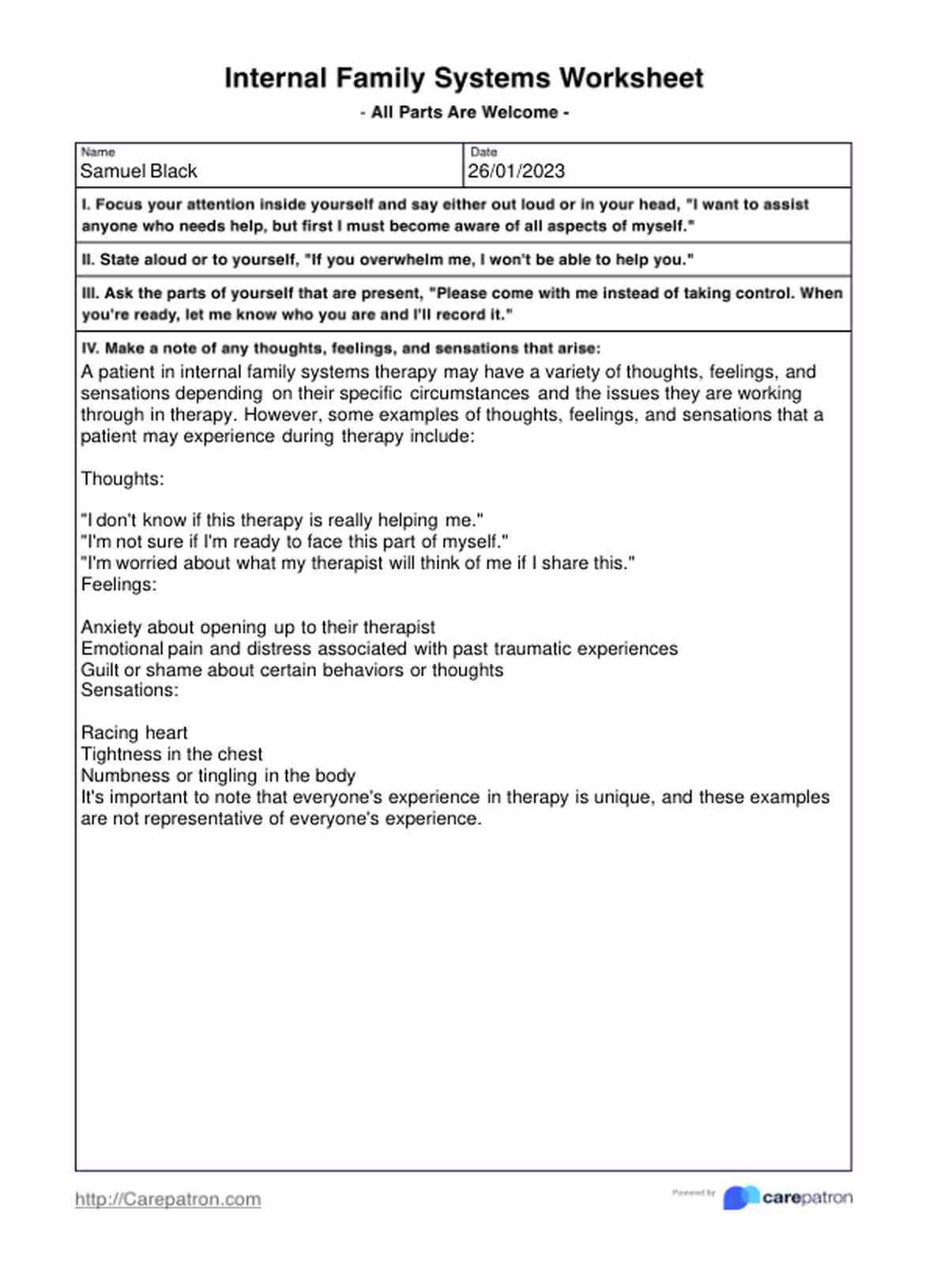

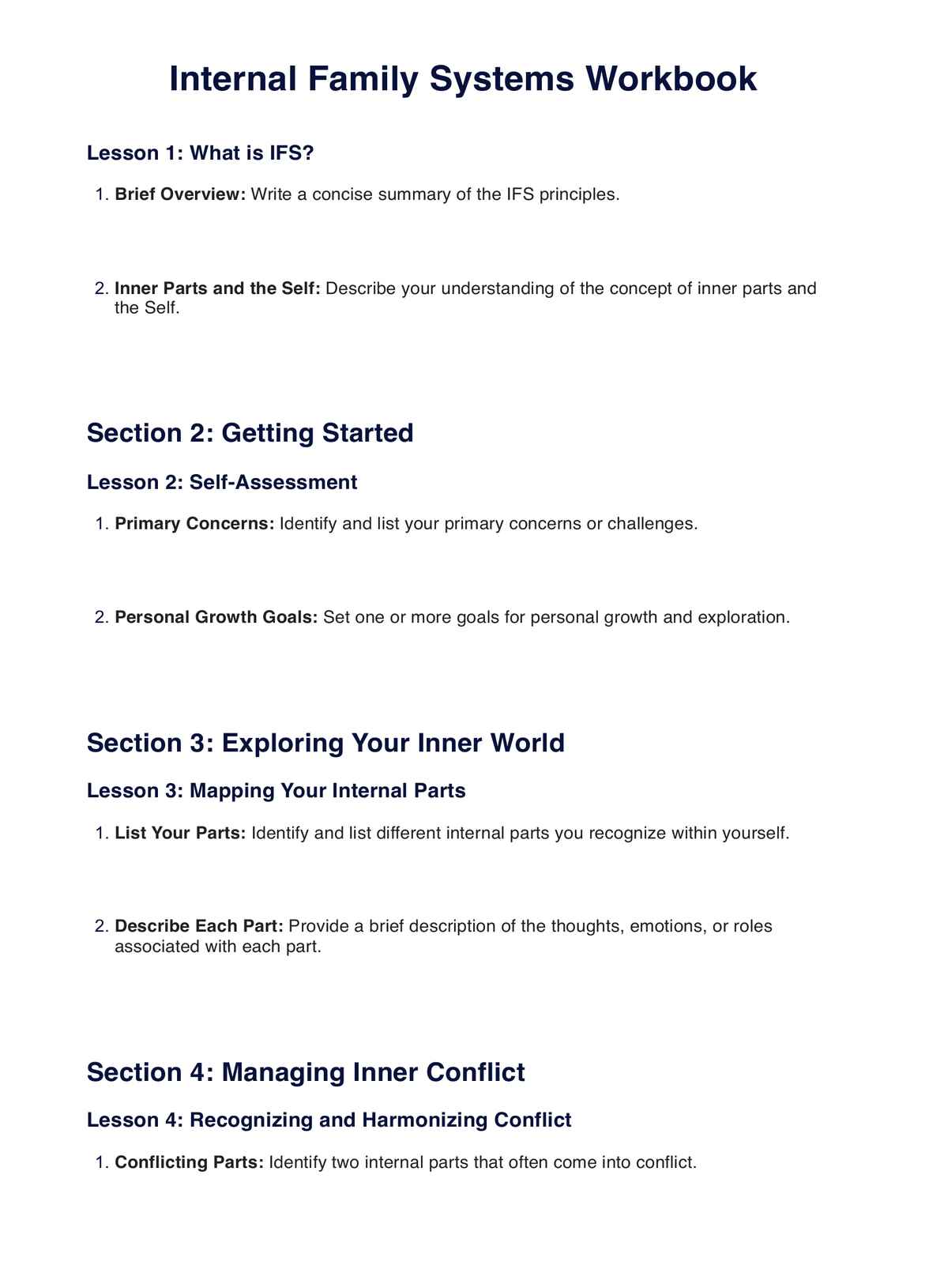














-template.jpg)





















































































